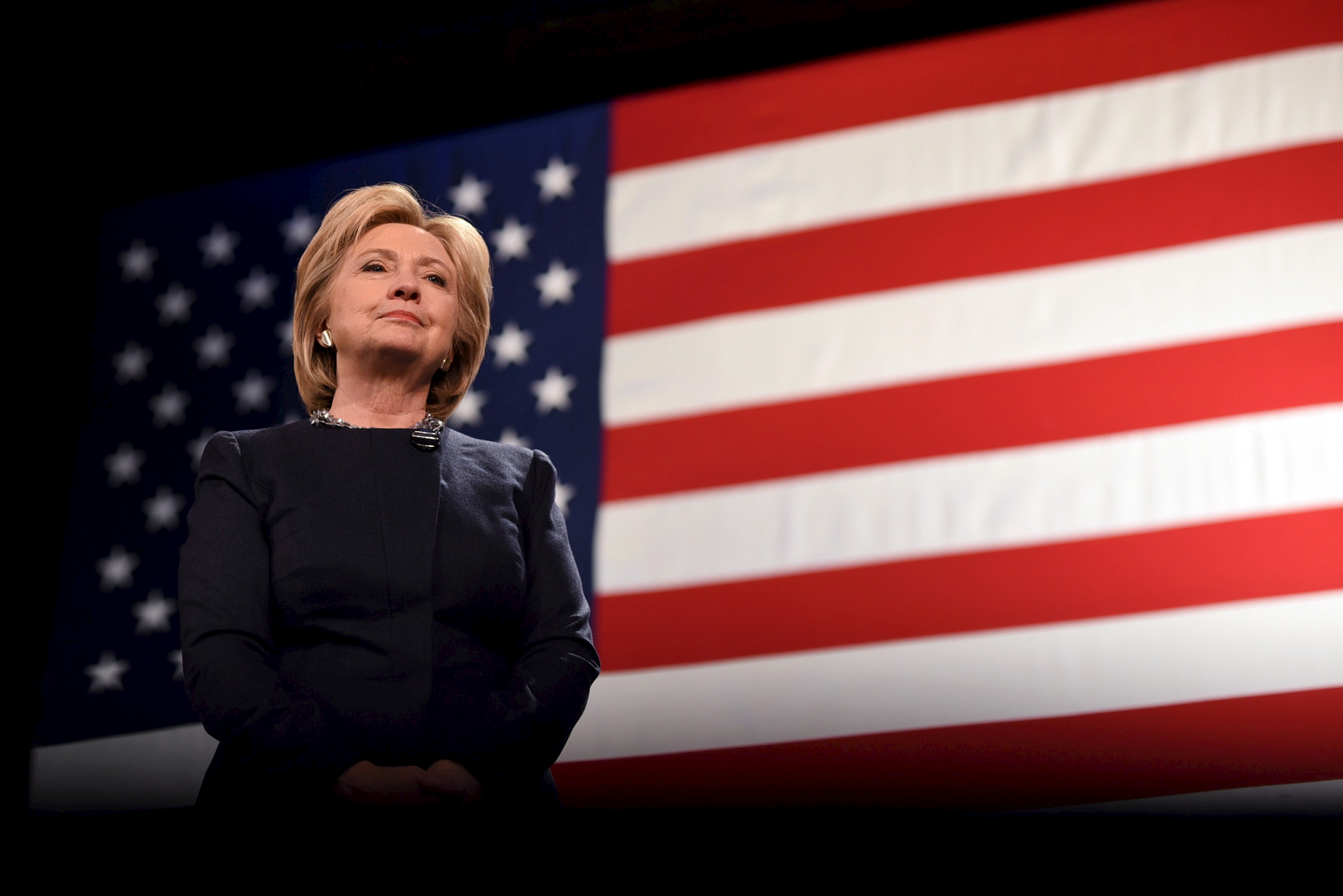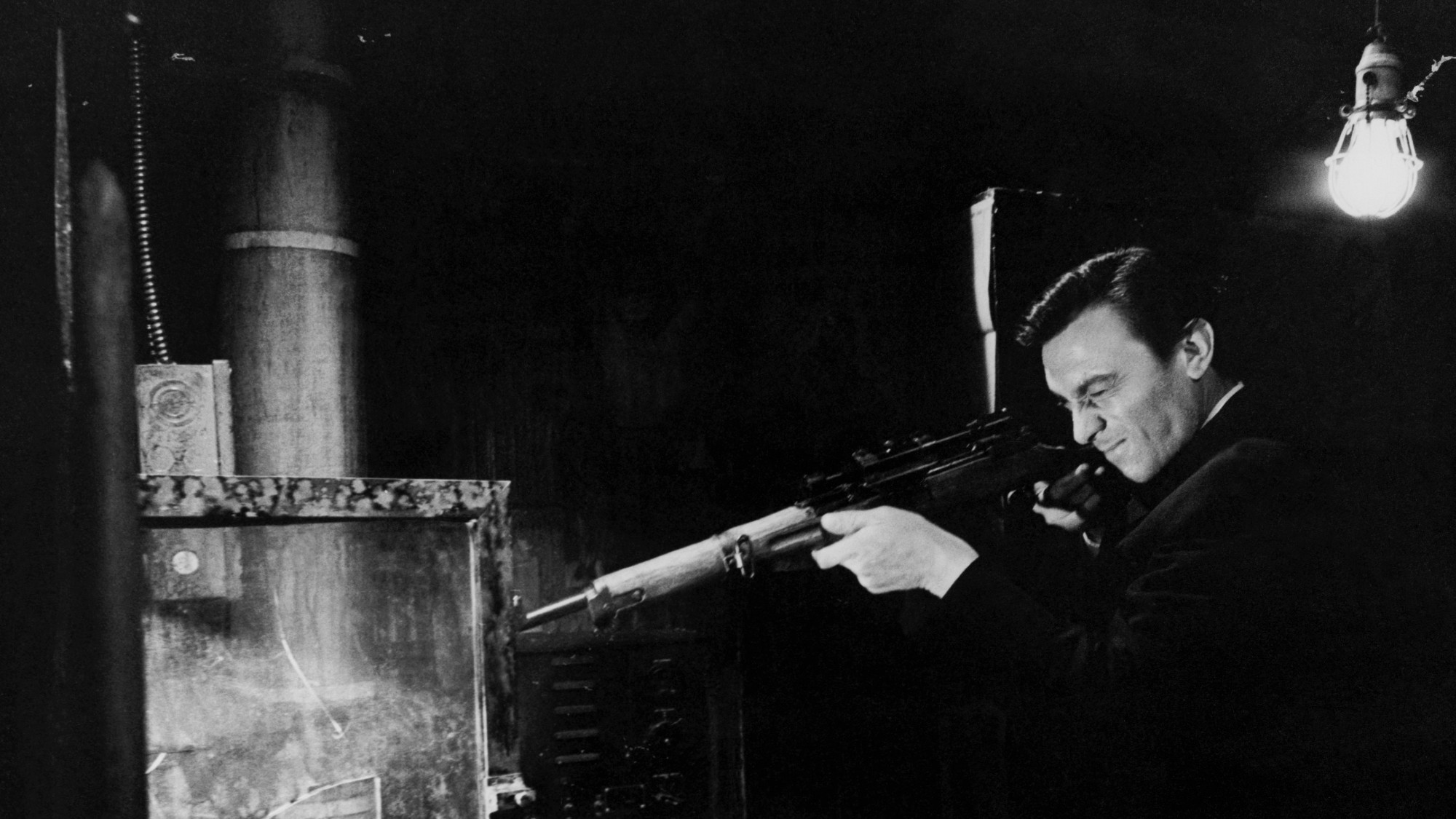The case against Hillary Clinton
Would she even make a good Democratic president?


Much of the argument in the Democratic Party primary has hinged on who is more electable. Hillary Clinton, as the more moderate candidate, has a somewhat more plausible case on this score — though at the moment she does a bit worse than her opponent Bernie Sanders in head-to-head polling matchups.
But consider a separate question: Would Clinton actually be a good president? No, argues Doug Henwood in his book My Turn: Hillary Clinton Targets the Presidency. As Daniel Davies observes, it provides a brief, reasonable survey of the case against returning Clinton to the presidency, free of the right-wing dreck clogging up the internet. The whole book is worth reading, but the main argument can be grouped under three headings.
1. Clinton is far too aggressive with the use of military force. Because the American president has a nearly free hand when it comes to foreign policy, this is the most important part of the anti-Clinton brief. Her history suggests she would be more aggressive than President Obama (who hasn't been much of a dove himself).
The Week
Escape your echo chamber. Get the facts behind the news, plus analysis from multiple perspectives.

Sign up for The Week's Free Newsletters
From our morning news briefing to a weekly Good News Newsletter, get the best of The Week delivered directly to your inbox.
From our morning news briefing to a weekly Good News Newsletter, get the best of The Week delivered directly to your inbox.
Most notoriously, she voted for the war in Iraq — even endorsing the Bush administration's false accusation that Saddam Hussein had given "aid, comfort, and sanctuary to terrorists, including al Qaeda members" — but it's been a consistent theme even after that gruesome catastrophe. As secretary of state, she supported escalation in Afghanistan, pushed hard for the Libyan intervention, and lobbied for a continued military presence in Iraq. She was on the hawkish edge of internal Obama administration debates on Syria, plotting with then-CIA Director David Petraeus to arm rebels there (though the plan was rejected by the president).
She also worked to prevent the return of leftist Manuel Zelaya to the presidency of Honduras after a military coup in 2009, proposing to send longtime Clinton hack Lanny Davis as a back channel to the new regime. At the time, Davis was working as a U.S. lobbyist for a pro-regime Honduran business group. She also recently praised Plan Colombia, a drug war military effort whose export around Latin America has been utterly disastrous.
Yet even though she lost the 2008 primary by a hair largely because of her vote for the Iraq war, Clinton has continued to attack Sanders from the right on foreign policy. A few days ago, she tore into him for suggesting that the U.S. ought to consider gradually normalizing relations with Iran, as it has with Cuba. It suggests real ideological commitment — and in a bad way.
Finally, while Clinton touts her experience on foreign policy, it doesn't seem to have produced many results when it counted. While Clinton's own list of accomplishments at the State Department is rather thin (remember the "pivot to Asia"?), her immediate successor John Kerry has hit a succession of diplomatic home runs: helping get chemical weapons out of Syria, re-opening relations with Cuba after half a century of rupture, pushing through a nuclear deal with Iran, in addition to a host of smaller victories.
A free daily email with the biggest news stories of the day – and the best features from TheWeek.com
2. The whole Clinton operation is extremely shady. Henwood's book documents many instances of suspect conduct by the Clinton Foundation, but perhaps the most spectacular example is the tangled story of how Bill Clinton reportedly helped a Canadian mining magnate named Frank Giustra buy uranium mining operations from the dictator of Kazakhstan, who then donated tens of millions to the Clinton Foundation.
Giustra sold out in 2007, but the same firm was later bought piecemeal by some Russians with government ties. The sale needed approval from a U.S. government body on which Hillary Clinton sat as secretary of state, because it involved uranium assets in the U.S. They got the approval, while the company chairman routed $2.35 million in donations to the Clinton Foundation, and a Russian investment bank with ties to the uranium company paid Bill $500,000 for a speech. Even that summary isn't doing the story justice. There's no evidence of an explicit quid pro quo here, but suffice to say it looks bad.
Clinton has raised millions in campaign contributions from all sorts of rich industries, particularly Wall Street. She's also profited personally, collecting millions in speaking fees from several huge finance players. One wonders what that could possibly be for, if not political access.
The still ongoing email scandal is still another example of a classic Clinton behavior: extreme secrecy and paranoia. She despises the press (with some justification, to be fair), and instinctively treads right up to the line of acceptable behavior for a public official. Though the story has not revealed any serious wrongdoing, it consumes political attention.
One of the underrated benefits of the Obama presidency is his squeaky-clean personal conduct. While I find much of the press' behavior towards the Clintons weirdly obsessive at best, they would not have so much grist for the scandal mill if Clinton were more scrupulous about following the rules. A Clinton presidency is almost guaranteed to be a continual parade of suspicious stories and scandals.
3. General Clinton ideology. The Clintons were at the forefront of the turn towards neoliberalism in the Democratic Party, the most disastrous of which was the evisceration of traditional welfare in 1996, which increased extreme poverty in this country by 150 percent. Not so long ago she sounded like Rand Paul when speaking about poor people. She neither admits this was a mistake nor outlines a plan to reverse the damage.
Aside from the welfare debacle, Clinton has a long history of being pro-deregulation, anti-labor (she spent six years on the board of viciously anti-union Walmart, and did not defend worker organizing once), and advocating for draconian anti-crime policy. Though she (like most other Democratic centrists) has come around on financial regulation and in other areas, the journey has been incomplete and halting at best. Instead of straightforward social insurance, the signature Clinton policy remains fiddly little tax credits that accomplish little and add to the tax system's already mind-crushing complexity.
While her platform does have some good stuff in it, particularly on police reform and drug abuse, as Henwood writes, "Little that Hillary says about policy can be believed with any confidence." Given her campaign's dishonest triangulation against single payer and taxation in general, it's hard to believe that Clinton would go to the mat for the working class, particularly when it means jacking up taxes on the rich.
So while Clinton would surely be better than whatever crawls out of the Republican primary swamp, her presidency would be a step back for the nation as a whole.
Ryan Cooper is a national correspondent at TheWeek.com. His work has appeared in the Washington Monthly, The New Republic, and the Washington Post.
-
 The 8 best spy movies of all time
The 8 best spy movies of all timethe week recommends Excellence in espionage didn’t begin — or end — with the Cold War
-
 Why scientists want to create self-fertilizing crops
Why scientists want to create self-fertilizing cropsUnder the radar Nutrients without the negatives
-
 Are pesticides making florists sick?
Are pesticides making florists sick?Under the Radar Shop-bought bouquets hide a cocktail of chemicals
-
 The billionaires’ wealth tax: a catastrophe for California?
The billionaires’ wealth tax: a catastrophe for California?Talking Point Peter Thiel and Larry Page preparing to change state residency
-
 Bari Weiss’ ‘60 Minutes’ scandal is about more than one report
Bari Weiss’ ‘60 Minutes’ scandal is about more than one reportIN THE SPOTLIGHT By blocking an approved segment on a controversial prison holding US deportees in El Salvador, the editor-in-chief of CBS News has become the main story
-
 Has Zohran Mamdani shown the Democrats how to win again?
Has Zohran Mamdani shown the Democrats how to win again?Today’s Big Question New York City mayoral election touted as victory for left-wing populists but moderate centrist wins elsewhere present more complex path for Democratic Party
-
 Millions turn out for anti-Trump ‘No Kings’ rallies
Millions turn out for anti-Trump ‘No Kings’ ralliesSpeed Read An estimated 7 million people participated, 2 million more than at the first ‘No Kings’ protest in June
-
 Ghislaine Maxwell: angling for a Trump pardon
Ghislaine Maxwell: angling for a Trump pardonTalking Point Convicted sex trafficker's testimony could shed new light on president's links to Jeffrey Epstein
-
 The last words and final moments of 40 presidents
The last words and final moments of 40 presidentsThe Explainer Some are eloquent quotes worthy of the holders of the highest office in the nation, and others... aren't
-
 The JFK files: the truth at last?
The JFK files: the truth at last?In The Spotlight More than 64,000 previously classified documents relating the 1963 assassination of John F. Kennedy have been released by the Trump administration
-
 'Seriously, not literally': how should the world take Donald Trump?
'Seriously, not literally': how should the world take Donald Trump?Today's big question White House rhetoric and reality look likely to become increasingly blurred
